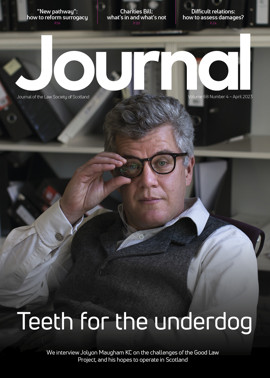What do you know about memory?
How does memory work? Are memories stored forever? Witness testimony reliant on long-term memory is a common feature in many justice settings, and personal views about memory play a pivotal role in professional practice.
Now the help of practising lawyers is wanted for a study that aims to capture new information on UK lawyers’ beliefs about memory.
The research is part of the first nationwide study to investigate legal, therapeutic and lay populations' memory beliefs. It will form part of a PhD dissertation, and has been approved by the University of Portsmouth's Science & Health Faculty Ethics Committee. The researcher, Pamela Radcliffe, is a former practising barrister and lead editor of Witness Testimony in Sexual Cases.
Barristers and solicitors in England, Wales and Northern Ireland are already taking part. Encouraging as many solicitors and advocates as possible to take part is important. A larger study size increases the scientific integrity and statistical validity of data findings.
All practising solicitors and advocates are eligible to take part. The survey is anonymous, confidential and quick (about 10 minutes). It is completed at the participant’s private location
on any e-device. It is accessed via an e-link to a secure, password-protected online survey platform.
 For more information and to join the survey, go to: bit.ly/ 4KKE1jU
For more information and to join the survey, go to: bit.ly/ 4KKE1jU
Or scan the QR code.
Perspectives
Features
Briefings
- Criminal court: Towards proper control
- Planning: NPF4 – an emerging housing issue
- Insolvency: Court confirms overseas winding up approach
- Tax: R&D relief – welcome changes but outlook uncertain
- Immigration: Family reunions given new rules
- Scottish Solicitors' Discipline Tribunal
- In-house: Support to suit






